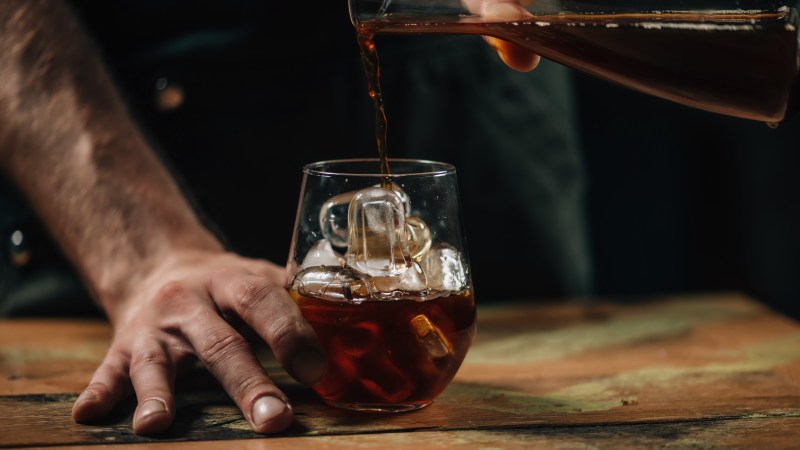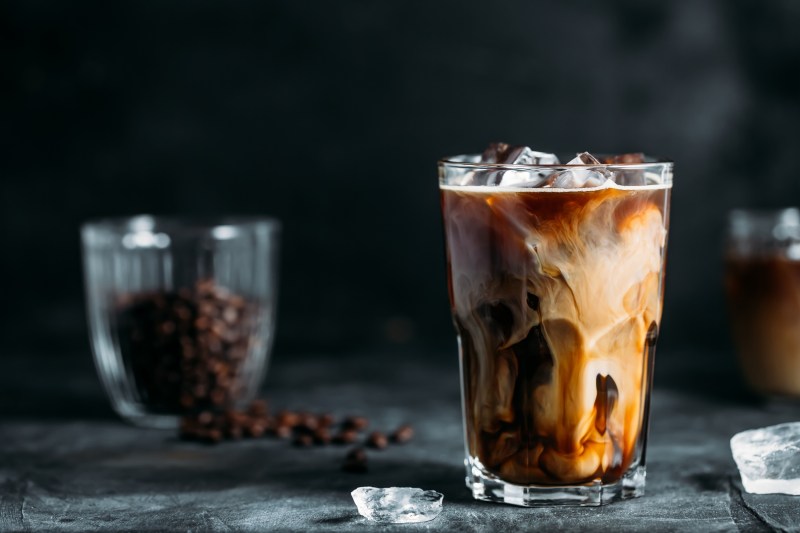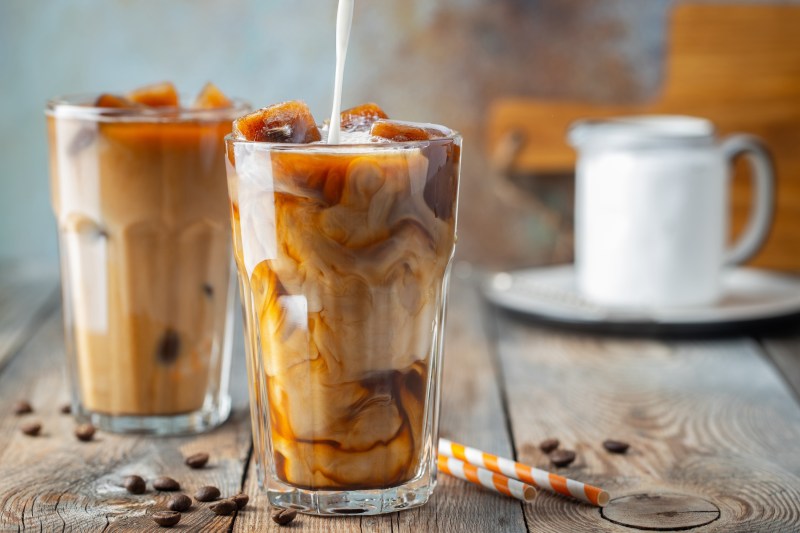
Us coffee lovers know there is no bad time for cold coffee beverages; it is perfect for any time of the year. Although cold coffee beverages have been enjoyed for decades, the iced coffee trend took off in the 1990s when nationwide coffee chains like Starbucks and Dunkin’ started offering these coffee drinks.
Since then, all types of cold coffee beverages have hit the market, including cold brew, nitro cold brew, and more. Cold brew coffee and iced coffee are often confused with one another based on their similar appearance, yet each has its flavor profile. Below, we’ll break down the differences between cold brew and iced coffee, including each drink’s caffeine content and acidity.
What is cold brew coffee?

Despite its name, cold brew coffee is not actually “brewed.” This type of coffee involves a long steeping process where coffee grounds are steeped in cold water over many hours. Most cold brew coffee is steeped over 12 to 24 hours. Cold brew has a very smooth and rich taste. Unlike brewed coffee, the low temperature of cold brew leaves it with a lower acidity than iced coffee.
Many people commonly mistake cold brew coffee for having a “stronger” flavor based on its caffeine content. While cold brew is stronger in terms of caffeine content, its flavor is less bitter than that of iced coffee. For this reason, many newbie coffee drinkers find that cold brew coffee goes down more smoothly than iced coffee. When purchasing coffee on the go, cold brew tends to be pricer than iced coffee as it requires a bit more time and effort to brew and is considered a specialty coffee.
The longer steeping process of cold brew coffee allows for a higher caffeine content. Although caffeine content will vary between brands, the average cup of cold brew coffee has around 200mg of caffeine per 16 ounces. Once cold brew coffee is made, it can last up to two weeks in the fridge when properly sealed.
Cold brew concentrate
Cold brew concentrate is a type of cold brew coffee that requires diluting before drinking. This strong version of cold brew is sold pre-made and can be enjoyed right away. To enjoy cold brew concentrate, add water and mix it up. This type of cold brew is sometimes used in drink recipes to provide a stronger coffee taste.
Nitro cold brew coffee
Nitro cold brew coffee is another variation of cold coffee that’s similar to both cold brew and iced coffee. However, nitro cold brew coffee is not served over ice. This type of cold brew is infused with nitrogen and is poured on tap or available in a can. You might have seen this type of coffee at your local Starbucks or Dunkin’. The small nitrogen bubbles infused into this coffee give it an ultra-creamy texture and slight notes of sweetness.
Although this variety of cold brew might seem creamy, it contains no calories or sugar (making it a great option to drink while intermittent fasting). Nitro cold brew usually contains a caffeine level that is similar to traditional cold brew coffee.
What is iced coffee?

Unlike cold brew coffee, iced coffee is brewed like standard hot coffee. Iced coffee is just standard brewed coffee that has been chilled. Once poured over ice, this leaves iced coffee with a milder taste. Iced coffee can be made much faster than cold brew, which takes several hours to steep for optimal flavor. Similar to standard hot coffee, iced coffee can be enjoyed black or with added cream or syrup flavors. The caffeine content in iced coffee varies depending on the size and type of coffee roast used, but on average, an 8-oz cup has around 95 mg of caffeine.
Making iced coffee vs. cold brew at home

Both iced coffee and cold brew coffees can be made easily at home. Many Keurig and single-serve coffee makers have a “brew over ice” feature, which is great for making iced coffee at home. If you find that the coffee isn’t cold enough after brewing, an iced coffee HyperChiller is a great way to cool your coffee down quickly.
Cold brew coffee can also be made at home but will require some advance planning as it requires several hours to brew. Cold brew coffee can be made in any standard mason jar, pitcher, or other large container. Ground coffee (not whole coffee beans) is needed to make cold brew. Although no equipment is required to make cold brew, using a cold brew coffee maker or pitcher can make the process easier.



